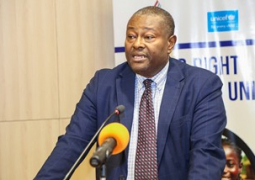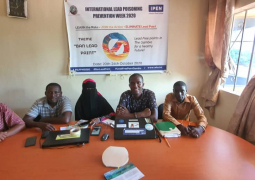H.E. Adama Barrow, who doubles as the Vice Chancellor of the University of The Gambia was speaking at 15th Convocation of the University of The Gambia (UTG) held recently at Q City in Bijilo.
The event attracted cabinet ministers, senior government officials, graduating students and their families and a cross-section of the community.
"Today’s graduation ceremony marks another spectacular milestone in the history of education in The Gambia. It is also a point of reference in the lives of the graduates and their families, as well as The University of The Gambia (UTG) and the Gambian nation at large."
The Gambian leader emphasised that the convocation signifies progress and underscores the collective commitment to educating the youths, whose skills and training is badly needed for the socio-economic transformation of our country.
The occasion, he added, also symbolises the dedication and determination of the youths to uplift themselves and their families by carving out career prospects and building on their past glories through academic pursuits.
"As head of state and chancellor of the UTG, I cannot be happier than being here to grace the ceremony and celebrate this accomplishment with all of you present," he said as he congratulated the graduates, staff, and students of UTG on what he described as a magnificent day.
He added; "The UTG Council, Administration, and entire staff deserve special commendation. We are proud of all of you, together with the Ministry of Higher Education, Research, Science and Technology (MoHERST).
"For a country like The Gambia, skills and entrepreneurship are critical enablers of speeding up socio-economic transformation. To realise this, however, higher education institutions must function as essential drivers for enhancing learning, skills development and nurturing a culture of entrepreneurship for sustainable development." he highlighted.
He indicated that as a guiding definition, it suffices to argue that sustainable development implies working progressively to persistently meet the current and emerging needs of society, without compromises on the optimal advancement of future generations.
"Thus, we expect sustainable development programmes to be suitably progressive, in line with the economic, social, and environmental concerns of the nation.
He recalled that over the years, people have seen strong economic growth in developing countries without corresponding decreases in unemployment rates, or critical increases in employment opportunities to meet the labour market needs.
"This mismatch raises the question: Are the knowledge and skills acquired from our institutions appropriate enough?"
President Barrow added that mindsets and skills for problem-solving, decision-making, teamwork and critical thinking strongly correlate with sound education and training for national development.
Read Other Articles In National News




